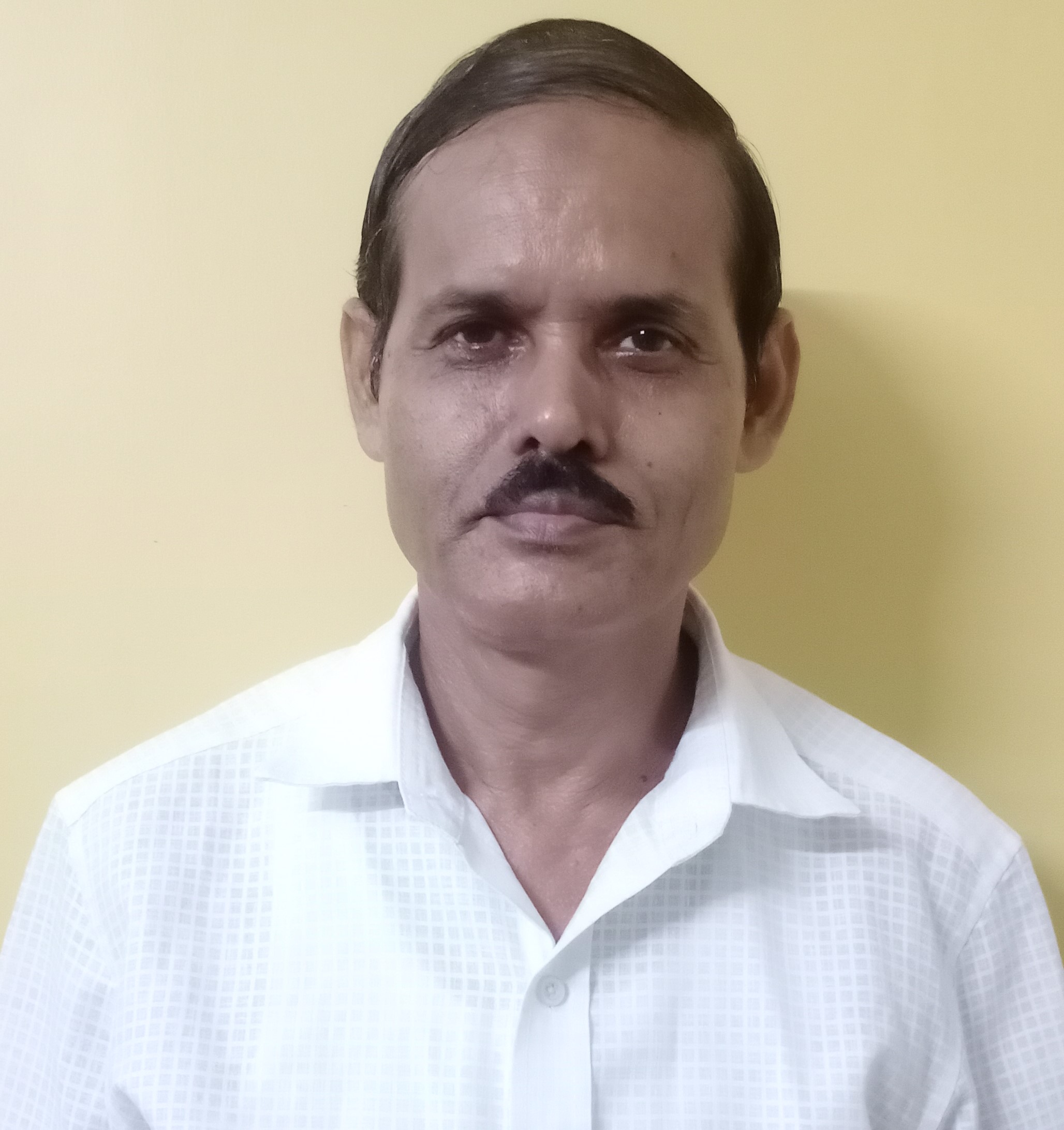Bhupen Narzary Head of the Department
MA (Gauhati) PhD (Gauhati)
Culture and Literature
bn[at]gauhati[dot]ac[dot]in
Jogen Boro, Acoustic Phonetic Analysis of the Bodo Language, Dr. Bhupen Narzaree (Supervisor), 2014
Rahel Mochari, A Critical Study on Female Characters of Manoranjan Lahary’s Novels, Dr. Bhupen Narzaree (Supervisor), 2015
Guddu Prasad Basumatary, A Descriptive Analysis on Bodo Suffix, Swarna Prabha Chainary (Supervisor), 2015
Nijwm Narzary, Semantic Structure of Bodo: An Analytical Study, Dr. Bhupen Narzaree (Supervisor), 2015
Mallika Basumatary, The Female Characters in Chittaranjan Mushahary’s Novel: A Crtitical Study, Dr. Bhupen Narzaree (Supervisor) 2016
Rupali Swargiary, The Growth and Development of Bodo Short Story from 1970-1990: A Critical Analysis, Dr. Bhupen Narzaree (Supervisor), 2016
Phukan Basumatary, A Study on the Verb Structure of Bodo and Assamese, Dr. Phukan Chandra Basumatary (Supervisor), 2017
Bhatima Baro, Linguistic Foundations for Bodo Spell Checker, Swarna Prabha Chainary (Supervisor), 2017
Nava Kumar Daimary, A Descriptive Study of the Socio-Cultural Life of the Bodos: With Special reference to Goalpara District, Dr. Bhupen Narzaree (Supervisor), 2018
Rujab Muchahary, A Study on the Mech Dialect of North Bengal, Swarna Prabha Chainary (Supervisor), 2018
Gwgwm Brahma Kachary, Material Culture of the Bodos: A Descriptive Analysis, Dr. Bhupen Narzaree (Supervisor), 2018
The Bodo department started in 1995 as a part of the Department of Modern Indian Languages. It became an independent department from the last quarter of 2006. Since its inception, the department has been taking the initiative to acquaint students in the fields of language, literature and culture in response to the demands of the time.
In addition to imparting knowledge on the Bodos and topics related to them, the Department takes an active interest to cater to other related areas that can contribute to the future careers of the students.
1. Post Graduate Program
a. Name of the program: Masters in Bodo (MBD)
A master degree program in Bodo is designed to enhance the knowledge of the students in the fields of language, literature and culture with an aim to produce skilled linguists, litterateurs and dedicated folklorists and preservers of culture.
b. Duration of the program: 4-Semesters, 2-Years
c. Intake capacity: 44 (forty four )
d. Admission process
i. For getting admission, students are to appear in an entrance test conducted for the purpose.
ii. Merit list for admission will be prepared based on 60% weightage from the UG/Qualifying examination marks and 40% weightage will be from the entrance test.
iii. 80% seats will be reserved for the affiliated college students and 20% will be for non-affiliated college students.
iv. Syllabus of the written examination comprises of-
a. Language
b. Literature
c. Culture
d. Literary criticism
e. Translation and translation studies
f. General aptitude
v. The medium of the entrance examination will be Bodo.
e. Program structure
The masters program comprises four semesters of 24 credits in each semester. In 1st and 2nd semester, Value Added courses are offered having 4 credits in each. In 3rd and 4th semester, Open/Elective Courses are offered having 6 credits in each.
Specializations
i. Emerging trends in literature (3036)
ii. Introduction to Language & Linguistics (3046)
iii. Identity and Bodo Literature (4036)
iv. Language Typology and TB Languages of NE India (4046)
Student opting 3036 in 3rd semester is to opt for 4036 in 4th semester. Accordingly, student opting 3046 in 3rd semester is to opt for 4046 in 4th semester.
2. Research Program
PhD Program in Bodo: Research work in Bodo is still in a budding stage. The aim of this research work is to explore those domains and areas that have until been left unexplored and unattended.
Duration: Minimum 3 years, maximum 5 years
Intake capacity: As per availability of seat
3. Certificate course in Bodo
This course is for those persons who are non-Bodos and have high interest and enthusiasm to learn and know this ethnic language of the region. It is a self-finance course.
Duration: 6 months
Intake capacity: 20
Department of Bodo Gauhati University, Guwahati 781014, Assam Phone : +91-94350-40444 Email : bodo@gauhati.ac.in Web : gauhati.ac.in/bodo.php
The journal Journal of the Department of Bodo covers all the trust areas coming under the humanities. It is a bi-lingual annual journal published in Bodo and English.
|
Sl.No |
Session |
NET |
NET/JRF |
SLET |
|
1 |
2012 |
12 |
05 |
02 |
|
2 |
2013 |
06 |
02 |
01 |
|
3 |
2014 |
10 |
06 |
08 |
|
4 |
2015 |
13 |
08 |
02 |
|
5 |
2016 |
06 |
01 |
08 |
|
6 |
2017 |
04 |
02 |
01 |
|
7 |
2018 |
14 |
02 |
---- |

MA (Gauhati) PhD (Gauhati)
Culture and Literature
bn[at]gauhati[dot]ac[dot]in


MA (Gauhati) MPhil (in Folklore, Gauhati) PhD (in Folklore, Gauhati)
Folklore
fbarmahalia[at]gauhati[dot]ac[dot]in

MA (Gauhati, in Assamese) PhD (Gauhati)
Language,Comparative Literature and Translation
ismailhussain[at]gauhati[dot]ac[dot]in